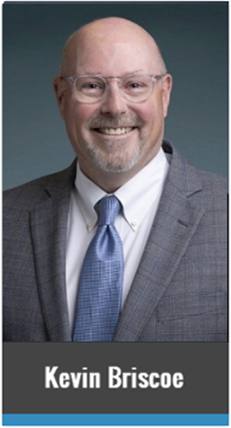
There's an interesting quote I hear quite regularly regarding how to act in times of strife or turmoil.
The only way out is through." – Robert Frost
If you think about it, it's a simple allegory for a moment when you may face a challenge, whether work, personal, or otherwise. Given that this is a business-related article, I'll limit my thoughts to the work environment, specifically examples facing business financial executives. The point, however, is that bemoaning the issue, or moment, or whatever the challenge may be, does very little to help you move on from that issue or moment. Action is what helps you more than any other element. Doing something is better than doing nothing almost all the time.
In a practical sense, I'm referring to a state-of-mind issue: how not to get bogged down in moments of singular concern. I'm not referring to day-to-day decision-making; that's a part of every worker's focus. But the more significant, more consequential issues perplex us in financial management.
A few examples might be:
- I've completed a financial forecast, and it shows the business running out of money in 6 months (or six weeks!)
- Our CEO just announced an acquisition that I don't know how to pay for, integrate into our current business, or garner the efficiencies offered post-integration.
- Our revenue is down 20% YOY, and our OH no longer allows us to be profitable.
- We are growing rapidly and can't find staff to meet the new demands the growth is placing on the business.
You get the idea.
And I'm confident any of you reading this can offer a list of a hundred additional challenges that rival any of these examples. That said, when issues like these arise, how do you approach them? What do you do to solve issues like these?
The following are a few examples of approaching significant challenges in your business's financial sector.
Be Open Minded… and Open to Things you Don't Want to Hear
 It may seem on the nose to say it. But I believe it's a challenge we all face when solving challenging issues. Finding a way to set aside preset beliefs can feel impossible, particularly for financial executives whose language (so to speak) is grounded in debits and credits and the reports created from the trial balance. It's fair to say that specific financial rules are not negotiable. However, the issues I'm suggesting are the most challenging to solve and are generally a byproduct of operational activities or things that aren't so obvious as reconciling cash accounts.
It may seem on the nose to say it. But I believe it's a challenge we all face when solving challenging issues. Finding a way to set aside preset beliefs can feel impossible, particularly for financial executives whose language (so to speak) is grounded in debits and credits and the reports created from the trial balance. It's fair to say that specific financial rules are not negotiable. However, the issues I'm suggesting are the most challenging to solve and are generally a byproduct of operational activities or things that aren't so obvious as reconciling cash accounts.
When initially pursuing ideas about addressing a challenge, you want as many ideas as you can get your hands on. Listen intently to everything everyone is willing to offer. You can decide later what's worth pursuing and what needs to be left behind.
Draw on Past Experience
Call this the "been there, done that" strategy. Now, you might argue that if you can utilize experience to solve an issue, perhaps it's not an issue. You may be right. However, what I'm suggesting here is about moving out of a mindset of despair and into one of forward-looking solutions. And the best place to start is to mine your memory banks for any circumstance relevant to solving the current issue.
Solicit Ideas Internally
 The solution to the most challenging issues can often be found within the organization, with the people most invested in you and your company's success. They are often the closest to the issues you're struggling with. And uniquely positioned to offer perspective from within that may be eluding you.
The solution to the most challenging issues can often be found within the organization, with the people most invested in you and your company's success. They are often the closest to the issues you're struggling with. And uniquely positioned to offer perspective from within that may be eluding you.
The risk here is that depending on the severity of the issue or the nature of what needs to change, you may not get the most unbiased information. If cost-cutting is necessary, it's rare for an individual to volunteer for the chopping block, even if it's the best decision for the organization. It can happen, and assuming you won't get good advice leaves you without a valuable perspective.
Solicit Ideas Externally
This can be a little tricky for both public and private entities, as financial information is often proprietary and not something that can be shared openly. However, almost all executives have Trusted Advisors they can call upon for scenario discussions and advice related to your circumstances, CPAs, Bankers, and Lawyers, all good options for confidential discussions. There are likely other companies who have been through something similar, and the experience these trusted advisors have with them could be very informative.
Peer groups are another excellent place to pursue ideas. Industries often have groups you can join to share ideas. Other organizations, like Vistage, EO, or YPO, are professionalizing the gatherings, creating a specific forum to gather information to help you run your business. (There are MANY others just like these you can also explore.)
Consider What Doing Nothing Will Result In
 I know… In the first paragraph, I said that doing something is better than doing nothing. WTH?! The critical modifier is "almost" all the time. In some circumstances, doing nothing is a viable strategy, or perhaps better stated, validation of a current strategy that has yet to make the impact you expect. Before changing course, it's worth considering if your current path is played out. Or if you can reasonably anticipate a change in outcome with more time. This can be a challenging gambit because you wouldn't likely be concerned with an issue if the current strategy was working. That said, it's worth considering.
I know… In the first paragraph, I said that doing something is better than doing nothing. WTH?! The critical modifier is "almost" all the time. In some circumstances, doing nothing is a viable strategy, or perhaps better stated, validation of a current strategy that has yet to make the impact you expect. Before changing course, it's worth considering if your current path is played out. Or if you can reasonably anticipate a change in outcome with more time. This can be a challenging gambit because you wouldn't likely be concerned with an issue if the current strategy was working. That said, it's worth considering.
Take Time to Evaluate What You've Learned
 It can be tempting to try to address an issue quickly. You wouldn't spend this much time addressing it if it weren't an issue, right? Finding a quick fix can be mighty alluring, make you look good to the organization, and have the benefit of resolving the issue altogether. But remember, I suggested we're not talking about day-to-day issues. These are often complex, multi-faceted challenges that can be feasibly addressed in more than one way, all leading to different outcomes. You're well served to take time to consider the implications of each option you've developed as solutions and take a thoughtful approach to your final recommendation.
It can be tempting to try to address an issue quickly. You wouldn't spend this much time addressing it if it weren't an issue, right? Finding a quick fix can be mighty alluring, make you look good to the organization, and have the benefit of resolving the issue altogether. But remember, I suggested we're not talking about day-to-day issues. These are often complex, multi-faceted challenges that can be feasibly addressed in more than one way, all leading to different outcomes. You're well served to take time to consider the implications of each option you've developed as solutions and take a thoughtful approach to your final recommendation.
"But what if I land on a great idea early?" That's a fair point. And if you do and are convinced it's the right solution, run with it! Remember, this article's point is about moving on from a place of inaction to action.
Summary:
I hope you better understand the importance of proactive problem-solving in business finance, as inspired by Robert Frost's quote, "The only way out is through." It advises financial executives to actively engage with challenges rather than lament over them. Key strategies include:
- being open-minded
- drawing on past experiences
- soliciting ideas both internally and externally
- considering the consequences of inaction
- carefully evaluating all options.
These approaches are essential for addressing significant, complex issues in financial management, such as forecasting financial shortfalls, handling unexpected acquisitions, managing revenue declines, and coping with rapid growth. The underlying message is the necessity of moving from a state of inaction to one of decisive action to effectively resolve pressing business challenges.
If you need to solicit ideas or create a plan, reach out to the CFO Selections team >
About the Author
 Kevin Briscoe is the Managing Partner of CFO Selections®, and stewards the culture and core values of the organization, including supporting the firm's philanthropic work through the CFOS Foundation.
Kevin Briscoe is the Managing Partner of CFO Selections®, and stewards the culture and core values of the organization, including supporting the firm's philanthropic work through the CFOS Foundation.
Throughout his career, Kevin has held ownership and management positions, providing effective leadership in increasing profitable growth. His professional career includes nearly 30 years in finance, accounting, and operations from Fortune 100, publicly traded corporations to small, closely held settings. Before joining CFO Selections® in 2007, Kevin was part owner of a successful lighting representative business, helping drive their growth from $30 to $70 million. He has also served as a financial member of South End Equities, where he was responsible for the purchase and management of a commercial real estate portfolio. His extensive experience in business strategy, management, and operations assists him in leading the firm.
Kevin earned a Bachelor of Business Administration degree in accounting from Gonzaga University.
He currently serves as Board Advisor for The Linehan Institute and has served as a past Board member of the Electric League of the Pacific Northwest Charitable Foundation, as Co-Chair for the American Cancer Society ‘Race for a Cure’ benefiting Breast Cancer research, and also enjoys playing softball in Kent, where he lives with his wife and enjoys spending time with his four children and many grandchildren.





